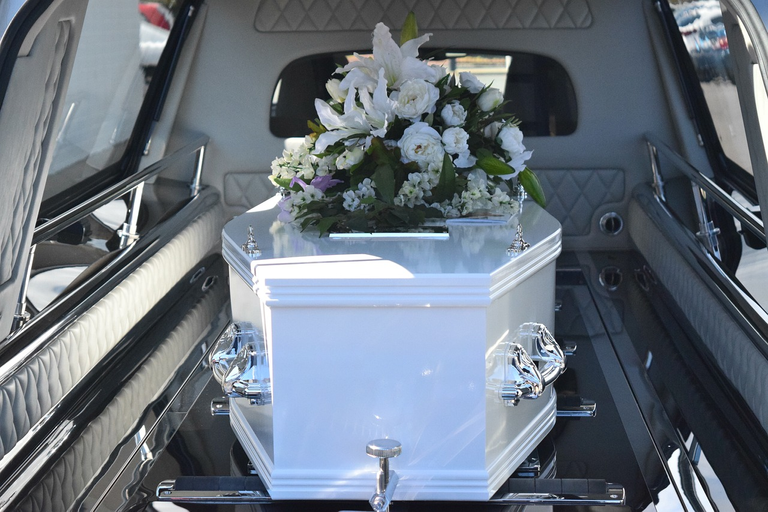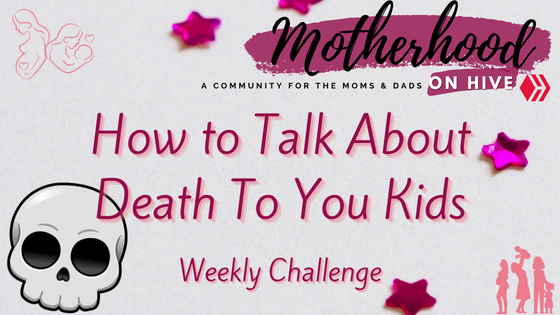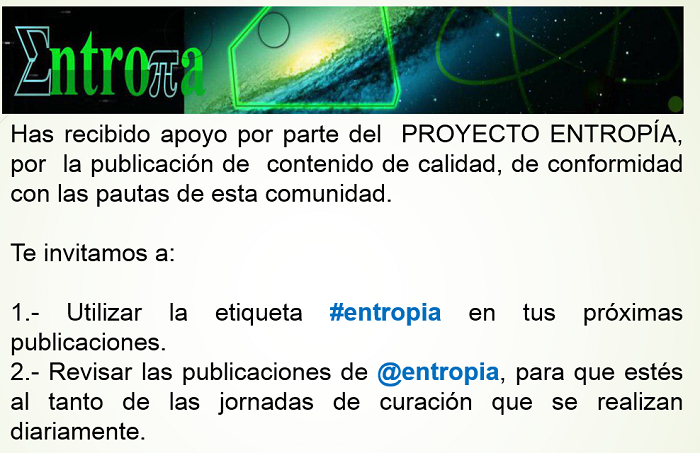Querida comunidad
@motherhood,
@victoriabsb,
@elizabeths14,
@marybellrg, cariñosos saludos para todos y un gran abrazo. El tema para esta semana es intenso, porque en la cultura occidental, le huimos a hablar de la muerte; tal vez en un intento mítico y subconsciente de alejarla de nosotros.
 Adiós a un ser querido
Adiós a un ser querido
Decir adiós para siempre a un ser querido no tiene nada de fácil, porque las emociones saltan y los sentimientos afloran ante la consciencia de la pérdida definitiva. Sin duda sufrimos y con el ánimo de evitar sufrimiento a los pequeños, podemos encontrar muy difícil hablar de la muerte con ellos.
Al respecto les presentaré dos ejemplos sobre el tratamiento del tema. En primer lugar les expongo mi caso. Mi hermana mayor falleció antes de mi nacimiento, yo nací en la etapa del luto por ella. Y no recuerdo asistir a ningún acto fúnebre, ni pisar un cementerio hasta los dieciocho años de edad, cuando tuve que ir al Cementerio General del Sur en Caracas.
La vista de las tumbas y el descuido y todo, me produjo un mareo, porque las emociones me sobrepasaron. Mis padres me habían sobreprotegido en este sentido.
Dada mi experiencia personal, no sobreprotegí a mis hijos, en las dolorosas experiencias de la muerte ni tampoco de la enfermedad, aunque si utilizamos filtros que consideramos oportunos.
 Rituales funerarios
Rituales funerarios
Cuando mi papá enfermó mis dos hijos, que estaban muy apegados a él, lo llamaban por teléfono al hospital, espontáneamente, como lo habrían hecho si estuviese en su casa, viendo un partido de futbol o disfrutando otro deporte.
Cuando falleció, viví dos respuestas diferentes con los niños, el mayor me dijo abiertamente que él no quería ir, pues quería conservar la imagen del abuelo que le hablaba de futbol. No lo presionamos en absoluto. Al escuchar a su hermano, el menor manifestó su deseo de acompañarnos. Así, uno se quedó y otro nos acompañó. No hubo arengas ni recriminaciones de mi parte ni por parte de su papá. Simplemente aceptamos sus decisiones, pero al día de hoy, aún veo a mi hijo, pequeñito arrojando primero tierra con sus manos sobre el ataúd y luego, flores. Fue algo demasiado hermoso.
Cada persona vive el duelo a su manera. Los niños son personitas en formación y, también cada uno tiene su manera de procesar el duelo. Recriminar y/o presionar sólo servirá para crear malestar o sentimiento de culpa.

Culto a los muertos
Ocultar a un niño, la muerte de un ser querido, puede ser un gran error; porque aunque estén en edades en las cuales no entiendan la muerte, siempre notarán la ausencia. Máxime si se trata de una persona que esté en su día a día y con afecto. El niño mostrará cambios en su conducta, puede volverse taciturno o agresivo, puede rechazar a otras personas. No decirle nada puede ser más complicado que darle una información filtrada a su medida, que podrá se completada cuando pueda entender mejor.
Por otra parte, actualmente, hablar de la muerte como un hecho (sin posturas filosóficas), puede ser bastante más fácil de lo que podríamos pensar, pues con los animes y los video juegos ven muchos muertos en pantalla. Y eso puede servirnos para explicar una ausencia definitiva en sus vidas.
Cuando los niños se están formando dentro de una fe religiosa, es más fácil aceptar la ausencia, porque en alguna manera uno cree entonces en una presencia invisible y cercana. Ya en su futuro cada niño decidirá, como adulto, en qué creer.


ENGLISH
Dear
@motherhood community,
@victoriabsb,
@elizabeths14,
@marybellrg, warm regards to all and a big hug. The theme for this week is intense, because in Western culture, we flee from talking about death; perhaps in a mythical and subconscious attempt to drive her away from us.
 Goodbye to a loved one
Goodbye to a loved one
Saying goodbye forever to a loved one is not easy at all, because emotions jump and feelings come to the fore in the awareness of the definitive loss. Without a doubt we suffer and in the spirit of avoiding suffering to the little ones, we can find it very difficult to talk about death with them.
In this regard I will present two examples on the treatment of the subject. First of all, I present my case. My older sister passed away before my birth, I was born in the stage of mourning for her. And I don't remember attending any funeral act, or setting foot in a cemetery until I was eighteen years old, when I had to go to the General Cemetery of the South in Caracas.
The sight of the graves and the neglect and everything made me dizzy, because the emotions overwhelmed me. My parents had overprotected me in this regard.
Given my personal experience, I did not overprotect my children, in the painful experiences of death or illness, although we did use filters that we considered appropriate.
 Funeral rituals
Funeral rituals
When my dad got sick, my two sons, who were very close to him, spontaneously called him at the hospital, as they would have done if he were at home, watching a football game or enjoying another sport.
When he passed away, I experienced two different responses with the children. The oldest openly told me that he did not want to go, because he wanted to preserve the image of the grandfather who spoke to him about soccer. We don't push it at all. Listening to his brother, the minor expressed his desire to accompany us. Thus, one stayed and another accompanied us. There were no harangues or recriminations from me or from his dad. We simply accept his decisions, but to this day, I still see my son, a little boy, first throwing dirt on the coffin with his hands and then flowers. It was something too beautiful.
Each person grieves in his own way. Children are little people in training and, also, each one has their own way of processing grief. Recrimination and/or pressure will only serve to create discomfort or a feeling of guilt.

Cult of the dead
Hide a child, the death of a loved one, can be a big mistake; because even if they are at ages in which they do not understand death, they will always notice its absence. Especially if it is a person who is in his day to day and with affection. The child will show changes in his behavior, he may become moody or aggressive, he may reject other people. Not telling him anything can be more complicated than giving him filtered information tailored to him, which can be completed when he can understand better.
On the other hand, currently, talking about death as a fact (without philosophical positions), can be much easier than we might think, because with animes and video games they see many dead on screen And that can help us explain a definitive absence in their lives.
When children are being formed within a religious faith, it is easier to accept the absence, because somehow one then believes in an invisible and close presence. Already in his future each child will decide, as an adult, what to believe.



imagen del Concurso, propiedad de @motherhood
♥Todas las imágenes están informadas, según se indica en cada una. ♥Los separadores son míos. ♥Use el traductor de Google.
♥All images are reported, as indicated in each one. ♥The dividers are mine. ♥Use Google Translate.

Banner propiedad de @motherhood

GRACIAS POR LEERME
THANKS FOR READING ME

 Adiós a un ser querido
Adiós a un ser querido



 Goodbye to a loved one
Goodbye to a loved one








